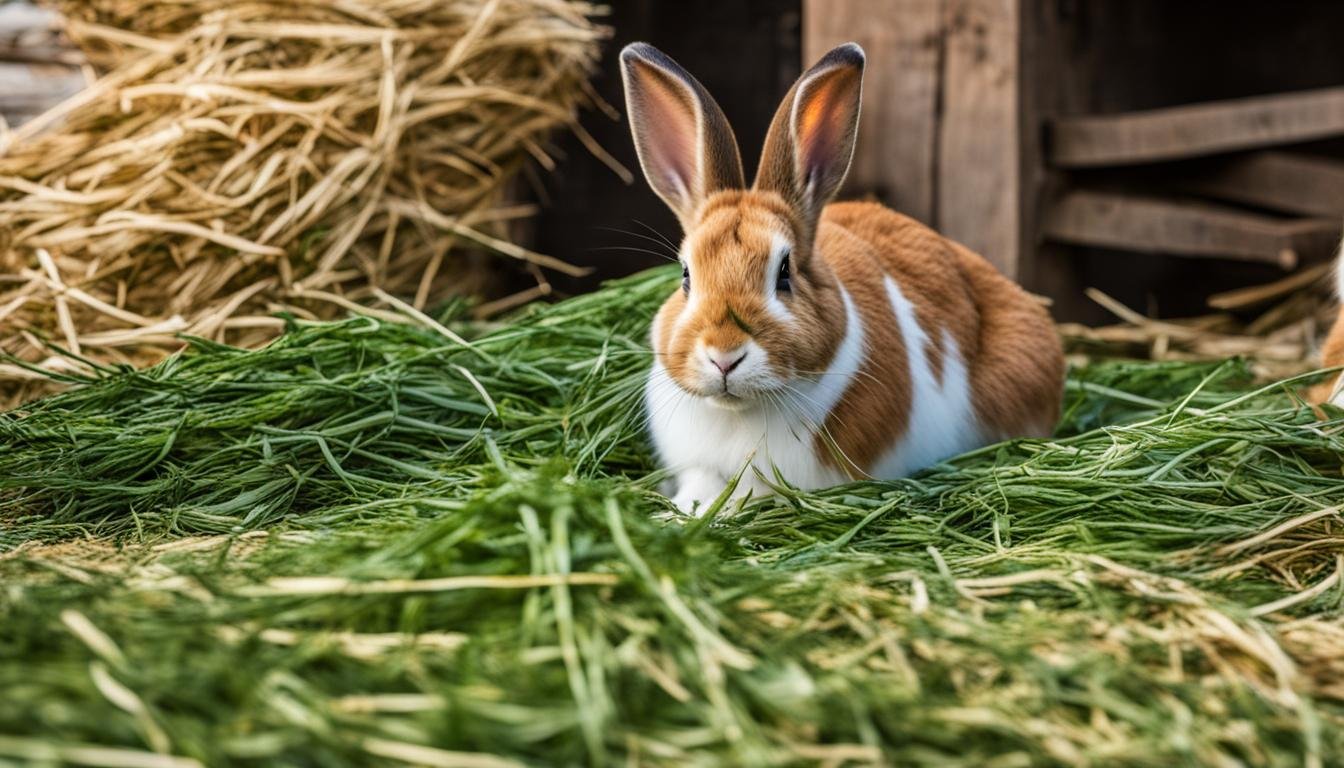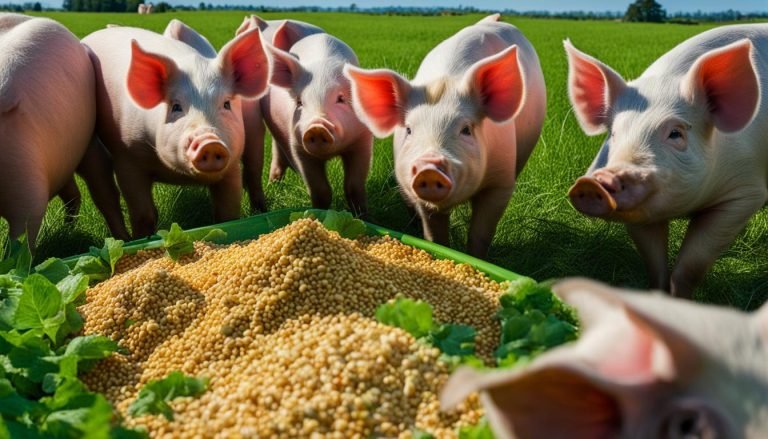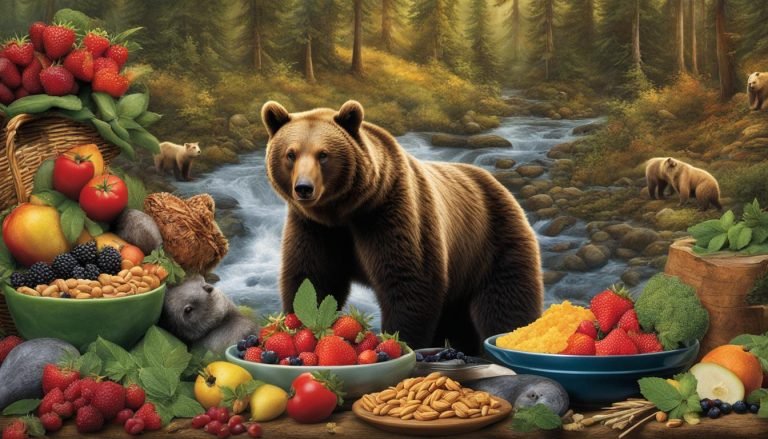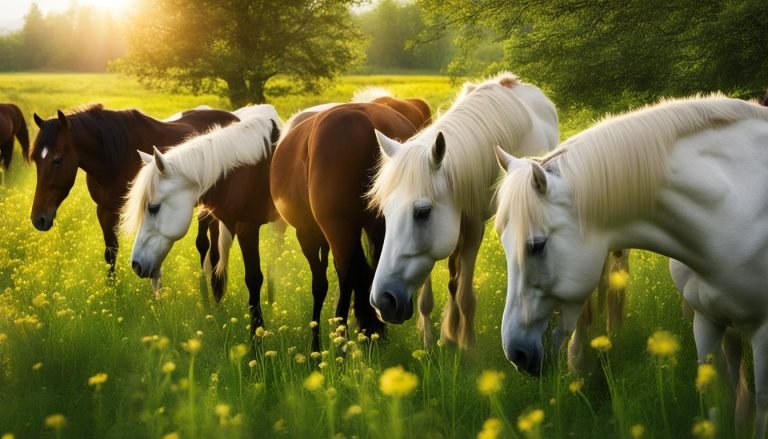What Do Rabbits Eat? Your Ultimate Guide to Bunny Nutrition!
As a rabbit owner, you want to provide the best care for your furry friend, and understanding their nutritional needs is crucial to their overall well-being.
In this guide, we’ll explore what rabbits eat, their dietary requirements, and the best food options for them.
Rabbit Quiz
How well do you know rabbits? Test your knowledge here!

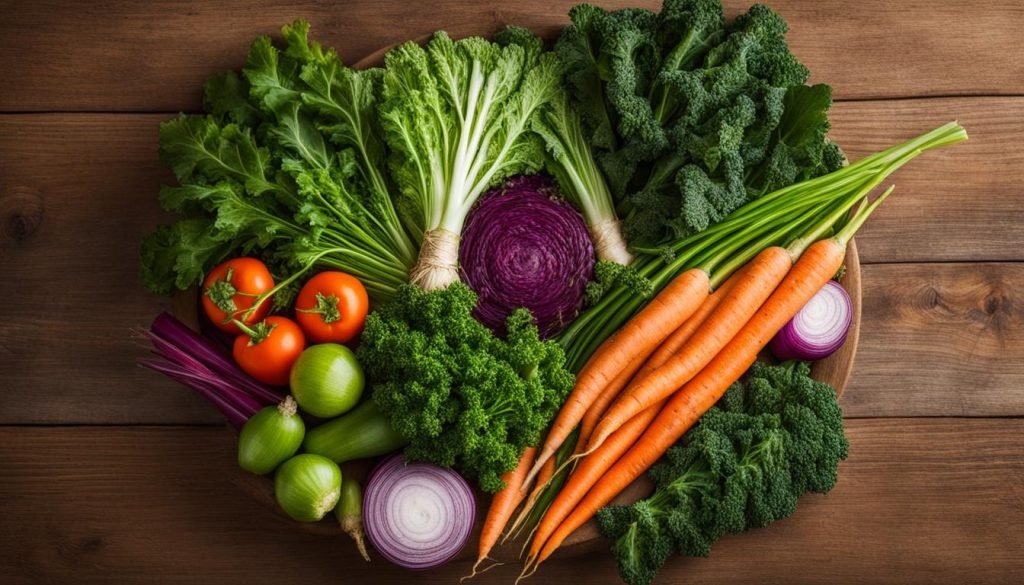
Key Takeaways:
- Rabbits primarily eat hay and grasses in the wild, so mimicking their natural diet is essential for their health.
- Hay is a crucial component of a rabbit’s diet, providing essential fiber and aiding in digestion.
- Vegetables should also be incorporated into a rabbit’s diet, providing essential vitamins and minerals.
- Fruits should be given in moderation due to their high sugar content.
- Pellets can be a convenient addition to a rabbit’s diet, but should not be the main source of nutrition.
Understanding a Rabbit’s Natural Diet
When considering what to feed your rabbit, it’s essential to understand their natural diet. In the wild, rabbits have a diet primarily consisting of grasses, hay, and leafy plants. These fiber-rich foods support their digestive system and help keep their continuously growing teeth healthy. It’s crucial to mimic this natural diet in captivity to ensure your bunny’s well-being.
One of the reasons hay is essential in a rabbit’s diet is that it provides the necessary fiber they need. Unlike other animals, rabbits can’t digest their food completely the first time around. Instead, a rabbit’s digestive system requires the slow breakdown of fiber – which is where hay comes in.
| Type of Hay | Benefits |
|---|---|
| Timothy | The best hay for adult rabbits, low in calcium, high in fiber |
| Orchard Grass | Good for picky eaters, high in fiber, low in calcium, protein, and fat |
| Alfalfa | An excellent choice for baby rabbits under six months and pregnant/nursing rabbits due to its high calcium and protein content |
While hay should make up the majority of your rabbit’s diet, vegetables are also an essential component. Incorporating rabbit-safe vegetables into your bunny’s meals can provide them with essential vitamins and minerals.
It’s important to note that not all vegetables are safe for rabbits to consume. Some of the best vegetables for rabbits include:
- Carrots
- Kale
- Romaine lettuce
- Bell peppers
- Parsley
Remember to start with small portions of vegetables and gradually increase the amount, as introducing new foods too quickly can upset your bunny’s digestive system.
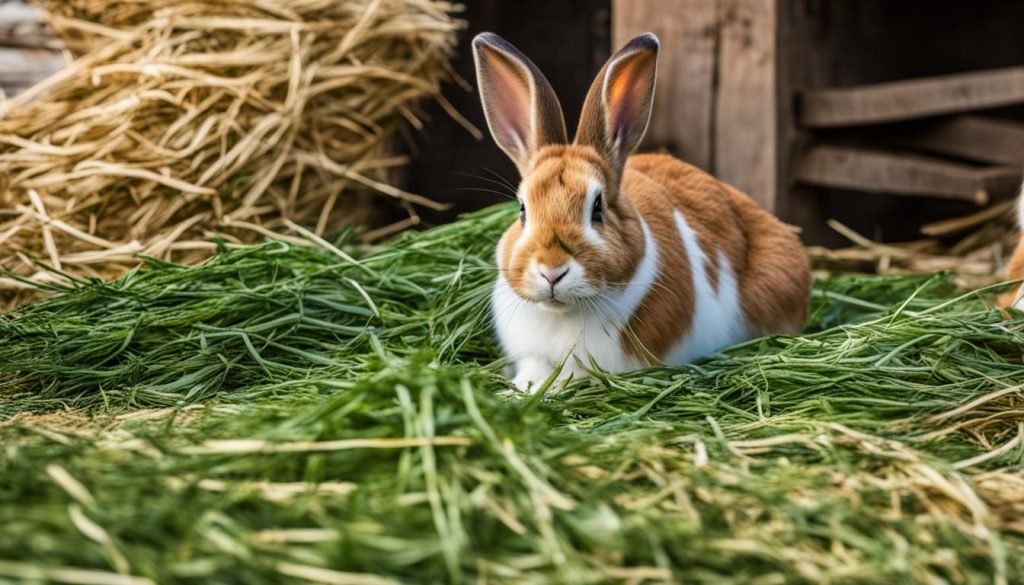
“By feeding your rabbit a diet that mimics their natural diet, you are providing them with the necessary nutrients and fiber for optimal health and happiness.”
The Importance of Hay in a Rabbit’s Diet
When it comes to a rabbit’s diet, hay is essential. As mentioned in the previous section, hay should make up the majority of a rabbit’s food intake.
Why is hay so important?
Hay is rich in fiber, which aids in digestion and promotes healthy gut function. Additionally, hay helps wear down a rabbit’s continuously growing teeth, preventing dental issues and pain.
There are several types of hay available, including Timothy, orchard grass, and alfalfa. Timothy hay is the most commonly recommended type for adult rabbits, while alfalfa hay is more suitable for younger rabbits and pregnant or nursing rabbits due to its higher calcium and protein content.
To incorporate hay into your rabbit’s diet, provide fresh hay every day. Offer it in a rack or hay feeder to keep it clean and uncontaminated. A good rule of thumb is to provide your rabbit with an amount of hay equivalent to the size of their body daily.
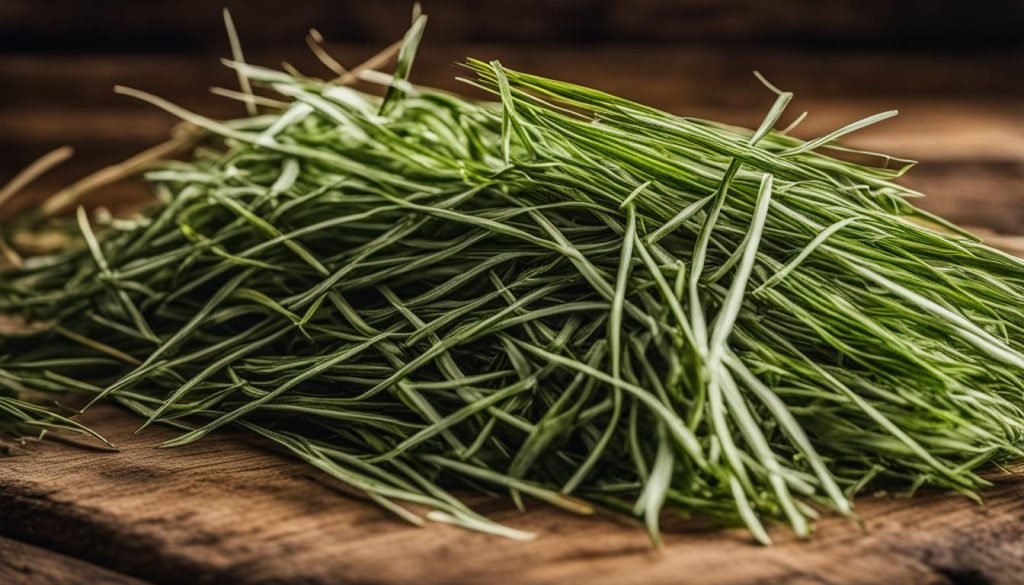
If a rabbit doesn’t eat enough hay, they may experience digestive issues such as constipation or diarrhea. Additionally, the lack of fiber can lead to dental problems, as their teeth can overgrow and cause pain or difficulty eating.
Overall, hay should be the foundation of a rabbit’s diet. Providing fresh, high-quality hay daily can ensure your bunny’s digestive and dental health, promoting a happy and healthy life.
Adding Vegetables to Your Rabbit’s Diet
Vegetables are an essential component of a rabbit’s diet and provide vital nutrients that contribute to their overall health and well-being. When introducing vegetables into your rabbit’s diet, it’s important to do so gradually to prevent any digestive issues.
Here are some rabbit-friendly vegetables that you can add to your rabbit’s diet:
| Vegetable | Nutritional Benefits | Serving Size |
|---|---|---|
| Carrots | Rich in vitamin A and beta-carotene, which support eye health | 1-2 baby carrots or 1 slice per day |
| Kale | High in vitamin C and calcium, which promotes bone health | 1-2 small leaves or 1 stem per day |
| Bell Peppers | Rich in vitamin C and antioxidants, which aid in immune system function | 1-2 small slices per day |
| Spinach | High in iron and other minerals, which support healthy blood flow | 1-2 small leaves or 1 stem per day |
Note: It’s important to provide a variety of vegetables to ensure your rabbit receives a balanced mix of essential vitamins and minerals.
When feeding vegetables to your rabbit, it’s crucial to avoid any that are toxic or harmful to their health. Examples of vegetables to avoid include avocado, onion, and garlic.
Here are some tips to keep in mind when adding vegetables to your rabbit’s diet:
- Wash all vegetables thoroughly to remove any pesticides or dirt.
- Introduce new vegetables slowly to prevent digestive issues.
- Offer a mix of leafy greens, root vegetables, and cruciferous vegetables.
- Remove any uneaten vegetables after a few hours to prevent spoilage.
By adding a variety of vegetables to your rabbit’s diet, you can ensure they receive a balanced mix of essential nutrients they need for optimal health.
Including Fruits in Moderation
As a loving bunny owner, you may be tempted to offer your furry friend all kinds of fruits. However, it’s crucial to remember that fruits should be given in moderation. Fruits are high in sugar, which can lead to digestive issues or weight gain if consumed excessively.
When it comes to introducing fruits to your rabbit’s diet, choose rabbit-safe options and start with small portions. One to two tablespoons of fruit per day is a good rule of thumb.
Some suitable fruits for rabbits include:
| Fruit | Serving Size |
|---|---|
| Bananas | 1 inch slice |
| Apples (without seeds) | 1-2 tablespoons |
| Berries | Small handful |
| Melons | 1-2 tablespoons |
Remember to wash all fruits thoroughly before serving them to your rabbit. Remove any seeds or pits, as they can be harmful to bunnies.
It’s important to note that not all fruits are suitable for rabbits. Avoid giving your bunny:
- Citrus fruits (oranges, lemons, limes)
- Grapes and raisins
- Avocado
- Cherry pits
As with any new addition to your rabbit’s diet, closely monitor their reaction and digestion. If your bunny experiences any discomfort or unusual behavior, consult with your veterinarian.
Understanding Pellets as a Supplement
While hay and vegetables should make up the bulk of a rabbit’s diet, pellets can be a useful supplement to ensure they are receiving all the necessary nutrients. However, it’s important to remember that pellets should not be the main source of nutrition for rabbits.
When choosing pellets, look for high-quality options that are fortified with essential vitamins and minerals. Avoid pellets that contain seeds, nuts, or dried fruits, as these can be high in fat and sugar.
The proper portion size of pellets will vary based on the size and age of your rabbit. Generally, adult rabbits should be given 1/4 to 1/2 cup of pellets per day, while younger rabbits may require more. Always check with your veterinarian to determine the appropriate amount for your rabbit.
It’s important to note that overfeeding pellets can lead to obesity, dental issues, and digestive problems. Always monitor your rabbit’s weight and adjust their diet accordingly.
In summary, pellets can be a useful supplement to a rabbit’s diet, but should not be relied upon as the main source of nutrition. Choose high-quality options, feed in moderation, and prioritize hay and vegetables to ensure your rabbit receives a well-balanced and nutritious diet.
More About Rabbits:
- How Do Rabbits Mate? – Explained
- How Long Do Rabbits Live? – Pet Care Guide
- 15 Facts About Rabbits That Will Fascinate You
- Rabbit Quiz: How Well Do You Know Rabbits?
Frequently Asked Questions
What do rabbits eat?
Rabbits primarily eat grasses, hay, and leafy plants. These fiber-rich foods support their digestive system and help keep their teeth healthy.
Why is hay important in a rabbit’s diet?
Hay is essential for rabbits as it provides fiber, aids in digestion, and helps wear down their continuously growing teeth. It should make up the majority of their food intake.
Can I feed vegetables to my rabbit?
Yes, vegetables are an important component of a rabbit’s diet. They provide essential vitamins and minerals. Gradually introduce rabbit-safe vegetables to your bunny’s meals for a balanced mix.
What fruits can rabbits eat?
Rabbits can enjoy fruits, but they should be given in moderation due to their high sugar content. Stick to rabbit-safe fruits and be mindful of portion sizes to avoid digestive issues or weight gain.
Are pellets necessary for a rabbit’s diet?
Pellets can be a convenient supplement in a rabbit’s diet, providing essential nutrients. However, they should not be the main source of nutrition. Choose high-quality pellets and feed appropriate portion sizes.

